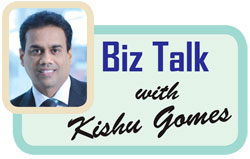Make year-end reviews purposeful
 In
a formal evaluation the feedback should be relevant and specific, with
examples for good and bad points. Employee strengths should be
acknowledged, and corrective action needed in weak performance areas
should be identified. In
a formal evaluation the feedback should be relevant and specific, with
examples for good and bad points. Employee strengths should be
acknowledged, and corrective action needed in weak performance areas
should be identified.
Year-end reviews are an excellent time to not only look back on
accomplishments, but to also look ahead and set challenging and specific
goals. As a manager, you need to give your employees constructive
feedback.
Annual or semi-annual performance reviews give you the opportunity to
praise employees for what they've done well, correct what they're doing
wrong, and discuss your vision for their growth and future at the
company.
The ideal outcome for a performance appraisal is for managers and
employees to have meaningful, reflective conversations together. It's a
chance to document the year's accomplishments, understand expectations
and celebrate progress.
While face-to-face conversations and regular informal feedback should
always be included in the review process, the written review is an
important tool to help your staff find out where they stand. An employee
can refer back to this document to make sure he or she is staying on
track between now and the next review period.
For this reason, it's especially important to make sure the reviews
you hand over to your team members are thorough, well-written and easy
to understand. Make it comprehensive. A well-written performance review
covers all the bases of an employee's work. It shouldn't be all positive
or all negative - a healthy balance of both is necessary to help your
team members evolve in their roles.
In a formal evaluation the feedback should be relevant and specific,
with examples for good and bad points. Employee strengths should be
acknowledged, and corrective action needed in weak performance areas
should be identified.
Feedback
Year-end or mid-year formal reviews shouldn't be the only time
employees receive feedback about their performance. There shouldn't be
any surprises when employees read their reviews from the boss. Employee
feedback should be given throughout the year as and when performance
issues, good or bad, arise.
A formal evaluation is ideally a recap of things that have been
addressed during the year. When there is a problem with an employee's
habits or actions, address it as soon as possible after the incident
occurs to avoid bringing that tension into the evaluation.
If an employee's behaviour (positive or negative) doesn't warrant
immediate feedback, make a note of it and use it as a reference point
during a formal or informal performance discussion. Give honest,
constructive criticism. It's never easy to tell an employee what he or
she needs to do to improve, but giving constructive criticism about your
team member's performance is an important part of the review process.
Be as clear and direct as possible about any shortcomings and
mistakes, but also take the time to provide solutions to those problems.
Fully explain what the issue is, and then expand on the options for
improvement.
Poor performers
If there have been any serious performance issues, the best approach
is to ask the employee open-ended questions, such as "How did you see
it?", "What would you suggest?" or "Did you get the result you wanted?"
Most employees work hard and want to do the right thing. Asking
open-ended questions can start an honest conversation that allows both
sides see each other's perspective and realize why the other reacted in
a certain way.
Questions can create positive discourse when two sides see things
differently. Encourage discussion about the review. Most managers agree
that it's frustrating when an employee has nothing to say in response to
his or her performance evaluation.
Push your employees to give you feedback on the issues you raise. The
written review should be a brief but direct overview of discussion
points, making for a more nuanced face-to-face conversation; this needs
employee feedback.
If the conversation begins to get heated and you want to avoid saying
something that you might regret, put the dialogue on hold. You can
continue a more serious discussion later via email or at another
meeting, after the employee has had a chance to cool down.
Always end performance reviews on a positive note. Encourage your
employees and lett them know you appreciate what they do for the company
will give an added boost to a primarily good review, or lift your
employee's spirits after a somewhat negative evaluation. Positive
phraseology and reinforcement go a long way in giving workers the
confidence and drive they need to perform even better. |

